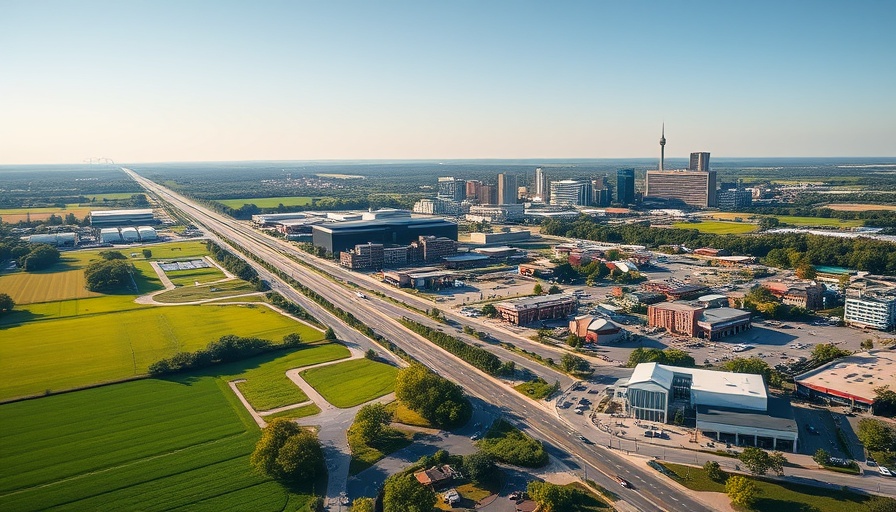
Columbus, IN: A City on the Cusp of Transformation
For the residents and leaders of Columbus, Indiana, the vision of a regional rail system is not just a distant dream but a necessity for future growth and development. In a world where connectivity plays a pivotal role in economic vitality, the introduction of regional rail transportation could redefine the local landscape, offering enhanced opportunities for entrepreneurs, small business owners, and skilled trades workers.
Importance of Interconnectivity in Local Economies
As city planners and economic development experts suggest, the benefits of having a regional rail link are manifold. Not only would it ease traffic congestion and reduce carbon emissions, but it would also enhance accessibility to job centers and union training facilities, directly influencing workforce participation.
Patterns from Other Regional Rail Systems
Looking at successful models nationwide, cities that have established comprehensive rail networks often see spikes in local business investments and job creation. For instance, regions in the Midwest that invested in rail have reported increases in housing developments and tourism, which can be crucial for Columbus as it seeks to promote itself as an attractive place to live and work.
Community Voices: The Demand for Change
Local citizens and business owners argue fervently for this initiative, highlighting their experiences in navigating a city lacking robust transit options. As one local entrepreneur put it, “If we want to keep and attract talent, we need to offer them the transportation options they expect.” This sentiment echoes a growing frustration with limited travel opportunities and underscores the importance of regional rail for attracting young professionals.
Looking Forward: Opportunities for Columbus
The introduction of regional rail would not only facilitate the movement of goods and people but would also serve as a catalyst for a flourishing local economy. Imagining a future where Columbus stands as a key transit hub could transform its economic profile entirely, turning residents’ aspirations into reality.
In this context, it’s imperative for stakeholders, including local government and business leaders, to take actionable steps towards actualizing the concept of a regional rail system. Together, they must advocate for the necessary funding and planning needed to bring this vision to life for the benefit of current and future generations.
 Add Row
Add Row  Add
Add 




Write A Comment